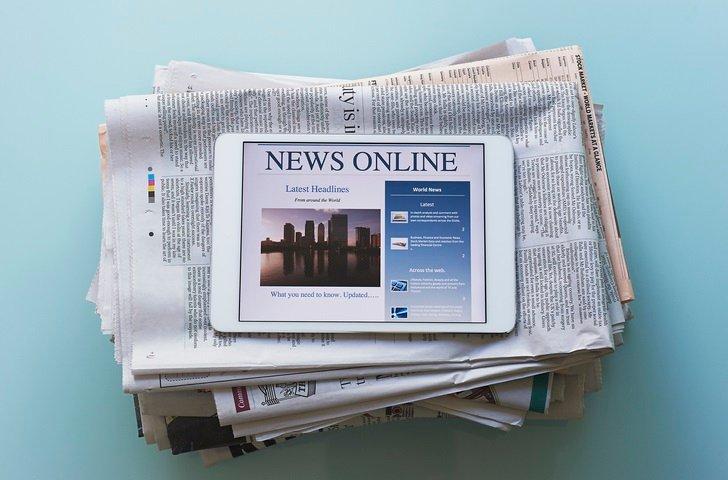Africa-Press – South-Africa. May 3 is World Press Freedom Day. A time to celebrate freedom of speech, and, specifically, media freedom. But we should also use this occasion to reflect on the role of the news media, writes Professor
Lizette Rabe.
The theme for this year’s World Press Freedom Day is “Journalism under Digital Siege”. Indeed, the Fourth Industrial Revolution’s “digital siege” of mainstream news media will ensure hot topics.
This year’s official celebration is being held in Uruguay from 2 to 5 May, and the specific focus is on media freedom, freedom of expression, the safety of journalists (including online attacks on women journalists), access to information, and privacy. As it should be. Free speech, and specifically, media freedom, must be cherished and celebrated. Media freedom, after all, is the essence of a democracy.
As always, there will be a lot of statistics to digest. The war in Ukraine means 2022 got off to a bad start. According to Reporters Without Borders, globally, in total, 22 journalists and two media assistants have been killed so far. As for the media freedom index, South Africa is still in a good position, although one space down, from 31 to 32 (out of 180). Those topping the list are – no surprise – again the Scandinavian countries; at the bottom sits North Korea.
Reflect
We should also use this occasion to reflect on the ever-present social media platforms and our addiction of doom-scrolling ourselves into apoplexy. And, of course, especially us living in liberal democracies should think how our “freedom of expression” is in the hands of not even a handful of Mighty Men who own the digital universe – or rather, metaverse. And how our personal data – which we can protect as much as we like – remain their companies’ merchandise. And then there is the elephant in the social media room – freedom of speech.
But we should also use the opportunity to reflect on the role of the news media in our so frail and fragile world. We as the news media should look inwards and ask ourselves: With all the onslaughts on journalists and journalism and the numerous ways we provide our publics with information, how can we ensure our various target audiences get the information they need to make informed decisions? To give them the bigger picture? How do we help our publics understand the way our planet is spinning under our feet? What with all these tormentors of our souls, especially those with a capital C: Covid-19, Conflict, Crime and Corruption?
Together, they are a force majeure; a total onslaught on our psyches.
What then should be the role of mainstream media – traditional journalism, not social media – to ensure we do not add to those alarm bells already screaming 24/7 in the back of our minds?
The answer of course is not sunshine journalism. Far from it. We as the media cannot pretend “all is well” when we know our poor planet is reeling under all the man-made disasters as a result of homo sapiens’ “progress”. Including a terminal, fatal case of plasticitis major, with whole islands of plastic swirling in our oceans (oh yes, and those nanoparticles in our bloodstream).
24/7 digital world
Clearly, the theme of “Journalism under Digital Siege” is a serious topic. We need to unpack every aspect of journalism according to non-negotiable journalistic principles, irrespective of the multimedia platforms on which it is practised.
In a 24/7 digital world we need to provide information on a 24/7 basis that is trustworthy, verified, relevant, independent, and tested. Especially with so many known and unknown interferences that undermine the daily newsflow.
One such example: An entire media company today hijacked by narrow, narcistic, political interests – one with a history of, inter alia, two proud newspapers that brought information to their publics since 1857 and 1876 respectively. And which stubbornly continues to propagate false information. (Think “Tembisa Ten”.) How then can our audiences trust so-called modern (digital) mainstream media? Another example: The SARS saga, where state capture hi-jacked a whole newsroom’s credibility?
Again, a newsroom with a proud history dating back more than 100 years. But the rest of our media enterprises should not smugly sit back and think we’re the answer to Good Journalism. No. We should rather use this 31st World Press Freedom Day to reflect on our role concerning populist, sensationalist, alarmistic “journalism”. All of which deepen the existing confirmation bias of specific audiences – and there are just too many examples.
Instead of patting ourselves on the back and pointing to the known baddies in our midst, we should ask ourselves: What about some perspective? What about what is called constructive journalism? How about, instead of the negative news flow feeding into that negative bias that seems to be part of the South African DNA, we purport a constructive, positive message?
Yes, the odds seem overwhelming. How can newsrooms already under pressure with regards to financial and human capacity, invest in quality journalism and give in-depth attention to the bad state of, well, almost every aspect of South African society? Or globally?
One media house describes one province’s cronyism and gangsterism as “Zuma’s mafia province”, with Jacob Zuma the “don of dons”. If state (and province, and municipal) capture is so endemic, how then can flailing newsrooms have the capacity to attend to the bad state of local and provincial governments and give perspective and context to all this bad news?
All is not lost
As per the state of our education system? Our railroad infrastructure? Or wait. That is a misnomer. There is no infrastructure left. Or cable theft’s perfect syndicate, from the thieves, to the scrap dealers, to those exporting copper from a province where copper is not even mined?
But as the cliché goes: All is not lost.
Journalism, specifically investigative journalism – and thank you to all those funders who keep the investigative units of News24 and Netwerk24, the amaBhunganes, the GroundUp’s and the Daily Mavericks, the Truth Firsts and Bhekisisa going – has proven the profession of journalism stands between a failed state and Hope. With a capital H.
The good news is: We can do more.
Instead of chasing clicks and those banal click-bait stories for the sake of algorithmic metrics, heed this plea on this year’s World Press Freedom Day: Let’s focus on the bigger picture.
Or the power of perspective, as another phrase for constructive journalism. What is constructive journalism?
It is the answer to tabloidisation, sensationalism and the negativity bias that have become such easy traps. It is an attempt to provide our audiences with fair, accurate and contextualised views without overemphasising the negative. Instead, we should focus on a constructive, solutions-based approach to journalism instead of knee-jerk conventional and expected perspectives on all the important socio-economic issues. We can do it. In the words of Nelson Mandela, “A critical, independent and inquiring press is the lifeblood of any democracy.” Despite the “digital siege”, we can serve our publics and ensure that we remain the “lifeblood” of democracy.
.
For More News And Analysis About South-Africa Follow Africa-Press






